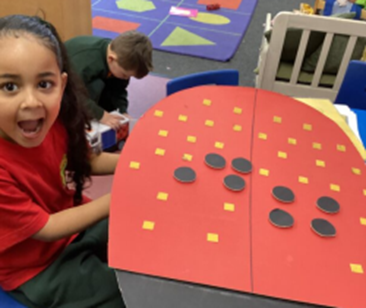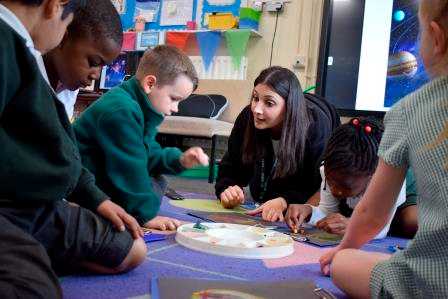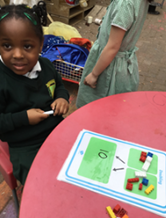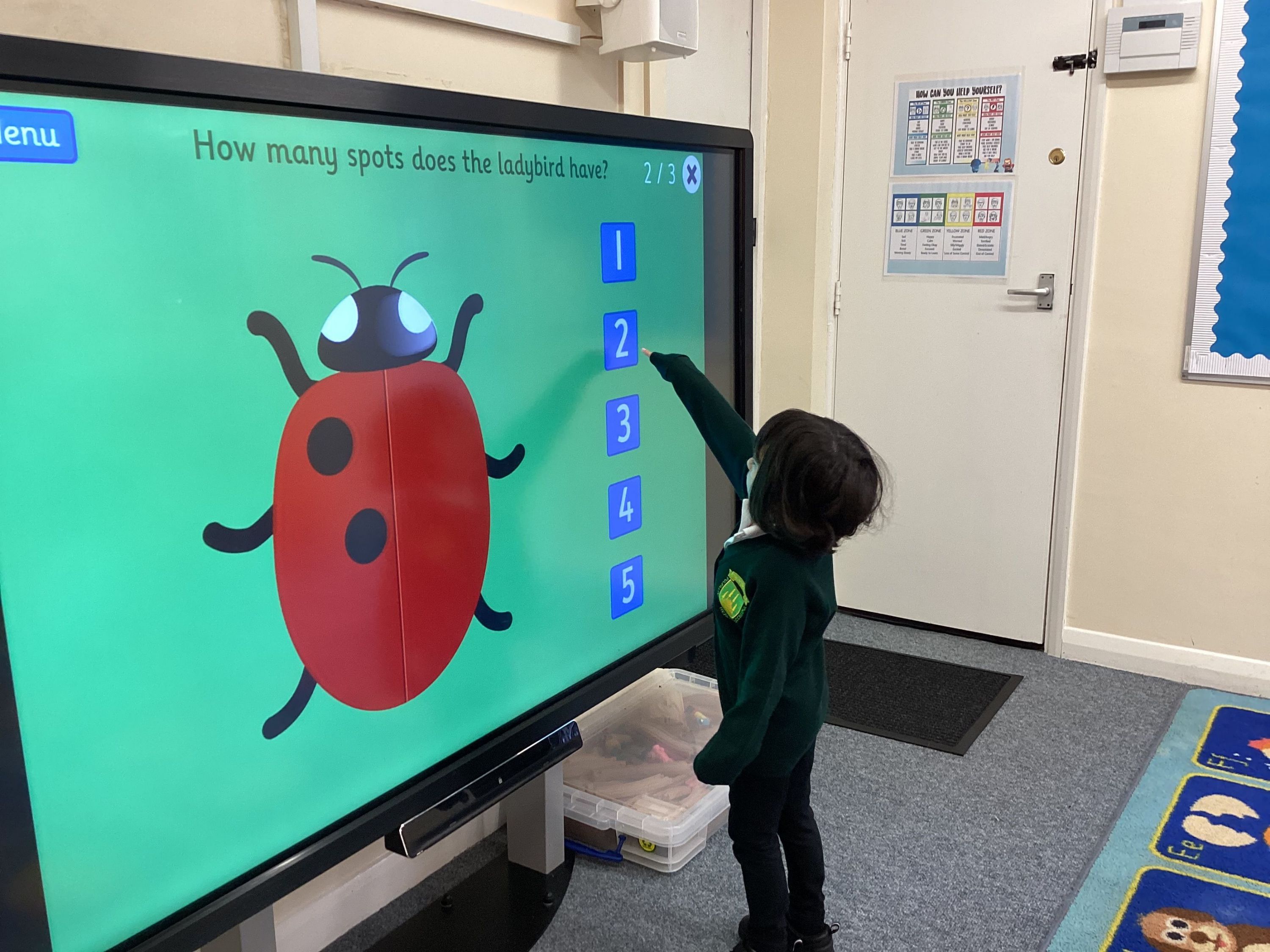Mathematics
“I enjoy playing maths games it helps me to learn better because we can explore maths in lots of different ways”
- Year 2 child
Intent:
At Forty Hill, the Maths curriculum is designed with our Vision of Learning and Living in Faith, Hope, and Service at its core. The root of our Maths policy is to develop confident, resilient learners who approach problem-solving with perseverance and curiosity, embodying hope in the face of challenges. Through collaborative learning, students demonstrate service by supporting one another in their mathematical journeys, while faith in their own abilities fosters a growth-mindset. Our goal is to nurture mathematically skilled individuals who apply their knowledge in ways that benefit their communities and reflect our school’s values.
We believe that maths is an essential part of everyday life. Learning is, therefore, focused on children securing a strong conceptual understanding of maths and developing the skills and self-confidence required to apply their mathematical knowledge to creatively solve problems. Through providing opportunities for children to experience real-world problems and uses of maths, children are able to practise applying their mathematical skills and see their value. All children are challenged and encouraged to excel in maths.
Throughout their maths lessons, children are supported in mastering their mathematical knowledge at all levels of learning. We believe that using concrete, pictorial and abstract approaches to teaching are fundamental in supporting children to bridge the gap from the abstract to the tangible. Children first gain a conceptual understanding through the use of practical equipment before representing problems pictorially, including bar models and part-whole models. The use of manipulatives enables children to gain a secure understanding of maths which can be used to support their use of written methods.

Implementation:
At Forty Hill, we have chosen to use a mastery approach and follow the White Rose Scheme of Learning, alongside Classroom Secrets and other resources where appropriate. To support children’s application of maths, pupils are taught a range of written methods which build upon their conceptual knowledge and enable children to efficiently calculate using mathematical operations. Children are taught these methods in conjunction with mental strategies which help children to become fluent mathematicians.
Our maths calculation policy sets out the progression in written calculations used from EYFS to Year 6. In the early years, we use the Early Learning Goals (ELG) of Number and Numerical Patterns to guide planning, which includes a variety of practical activities each week, where children learn mathematical concepts through hands on tasks. During ‘choosing time’, children also have the opportunity to engage in activities linked to their weekly maths focus, both inside the classroom and outdoor environment, through child initiated or adult supported play. Assessment is continuous, using work recorded in books and evidence on Tapestry.

In order to aid written calculations, children are given opportunities to use and consolidate key number skills and mental fluency, (including counting, number bonds, times tables etc.), through weekly Arithmetic sessions. Alongside written arithmetic questions, children learn from a variety of games and online programmes. This includes Times Tables Rock Stars (from Year 2) and Big Maths, Beat That (from Reception), meaning that children have a variety of fun and engaging ways to practice these skills.
By using a variety of resources, children are provided with opportunities to explore their understanding and apply their skills to new situations and problems. Additionally, children are encouraged to talk about their understanding using mathematical language and, with the support of careful questioning, explain their methods and answers. This enables our children to become literate mathematicians who can confidently express their understanding. Differentiation is approached through teacher questioning, additional scaffolding with supporting resources and planning for agile learning. Those children who are slower to grasp a concept will be supported by immediate intervention, whilst those who grasp concepts more rapidly will be given opportunities to tackle deeper challenges and enrich their understanding.
From KS1, assessment is carried out using White Rose Maths assessment papers, which match the coverage of learning in the classroom. These allow teachers to generate scaled scores which are used to inform planning and any necessary interventions.

Impact:
As a result of our maths teaching, pupils are able to:
- have positive attitudes to maths and are engaged and motivated
- increase their understanding and recall of key number facts and arithmetic skills across all Key Stages through a variety of approaches
- access well planned sequences of learning which support them to develop and refine their maths skills
- challenge themselves in their maths work and demonstrate a growth mind-set by applying knowledge to a range of increasingly complex problems
- receive appropriate support if necessary, in the form of targeted interventions and booster groups
At Forty Hill, we believe that maths is an essential part of everyday life.
Learning is, therefore, focused on children securing a strong conceptual understanding of maths and developing the skills and self-confidence required to apply their mathematical knowledge to creatively solve problems. Through providing opportunities for children to experience real-world problems and uses of maths, children are able to practise applying their mathematical skills and see their value. All children are challenged and encouraged to excel in maths.
Throughout their maths lessons, children are supported in mastering their mathematical knowledge at all levels of learning. We believe that using concrete, pictorial and abstract approaches to teaching are fundamental in supporting children to bridge the gap from the abstract to the tangible. Children first gain a conceptual understanding through the use of practical equipment before representing problems pictorially, including bar models and part-whole models. The use of manipulatives enables children to gain a secure understanding of maths which can be used to support their use of written methods.
“Manipulatives help us to understand what the number means which means that we can work things out easier and can answer questions with confidence without hesitating”
- Year 4 child

